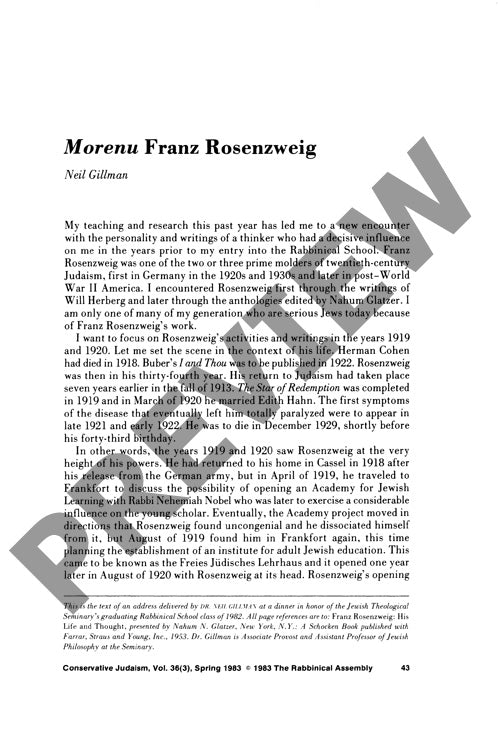Morenu Franz Rosenzweig
Couldn't load pickup availability
In 1919, as German Jews grappled with questions of identity and tradition in the aftermath of World War I, philosopher Franz Rosenzweig made a dramatic choice: rejecting a prestigious Berlin lectureship to establish the Freies Jüdisches Lehrhaus in Frankfurt, an innovative center for adult Jewish education. Through analysis of Rosenzweig's correspondence, institutional writings, and his opening Lehrhaus address, this research uncovers his revolutionary "learning in reverse order" pedagogy that began with students' lived experiences and worked backward to Torah, inverting traditional yeshivah methodology. Close textual examination of his exchanges with historian Friedrich Meinecke reveals Rosenzweig's fundamental break with purely academic approaches to Jewish learning, prioritizing instead the existential appropriation of Jewish tradition. His educational model recast teachers as existential guides rather than mere knowledge transmitters, marking a pivotal shift from Wissenschaft approaches toward modern Jewish existentialism. These philosophical and pedagogical innovations, developed during the height of Rosenzweig's intellectual powers in 1919-1920, established principles that remain vital to contemporary Jewish education and rabbinical practice.

More Information
-
Physical Description
-
Publication Information
Published 1983
ISBN
-
Publication Credits
Neil Gillman

